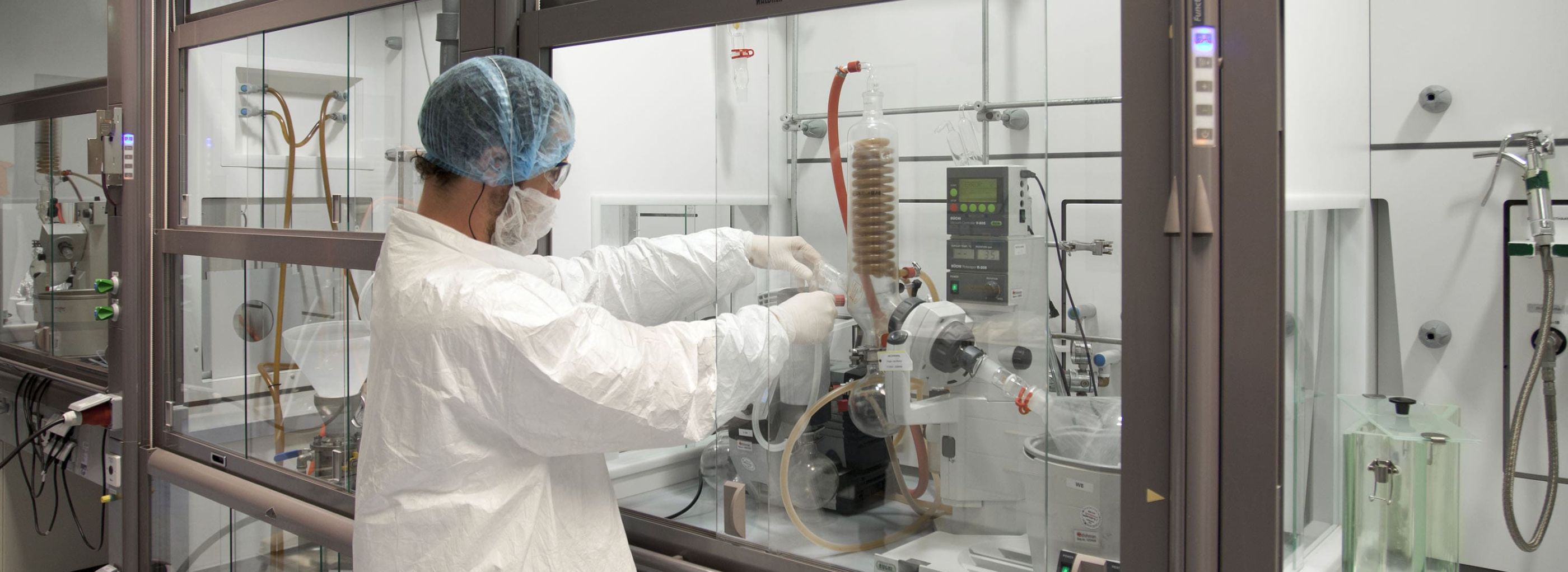
Q&A with Cor Veldhuizen, CARBOGEN AMCIS’ Global Head of Vitamin D analogues

CARBOGEN AMCIS, a pharmaceutical process development and Active Pharmaceutical Ingredient (API) manufacturing company, manufacturers Calcifediol (25-hydroxycholecalciferol) under cGMP regime at its facility in Veenendaal, the Netherlands. Recent studies conducted by Carlberg et al and Holick et al show Calcifediol’s effect on immune cells and immune gene expression. Cor Veldhuizen, CARBOGEN AMCIS’ Global Head of Vitamin D analogues, explains the importance of the studies and CARBOGEN AMCIS’ Calcifediol production line.
Download our Calcifediol product sheet
What is Calcifediol and how is it made?
In humans, when ultraviolet rays from the sun penetrate the skin, vitamin D is formed; this is stored in body fat. When the body detects low levels of vitamin D, the body releases it from the fat. The first metabolization then takes place in the liver, which is when Calcifediol is formed. This can also be stored in the body before metabolization in the kidneys to form the ultimate active substance Calcitriol.
CARBOGEN AMCIS has a long history of producing Calcifediol and Calcitriol, which are active compounds used in the pharmaceutical industry. These are two of the five different Vitamin D analogues that we supply from our Veenendaal facility in the Netherlands. The facility houses 80-90 personnel, half of whom are involved in the production and distribution of tens of millions of doses of Calcifediol and other vitamin D analogues every year. These doses are suitable for drug formulation including tablets, injectables, oral solutions and soft gel capsules.
Why are these recent studies of interest to CARBOGEN AMCIS?
The studies involved Calcifediol, which is the main Vitamin D analogue that CARBOGEN AMCIS produce in the Netherlands.
The studies are important because they show that Calcifediol is a potent and effective compound capable of activating immune response genes – and it effects the same genes as the ultimate effective vitamin D compound Calcitriol.
The studies also show that both plant (vitamin D2 compounds) and animal sources (vitamin D3 compounds) are capable of activating the immune system. This is important for the future production of these compounds as demand for vegan sources increases.
What are the advantages of using Calcifediol?
Calcifediol can be prescribed to patients to treat secondary hyperparathyroidism (a condition in which the body produces too much parathyroid hormone) in certain adults with chronic kidney disease (a condition in which the kidneys stop working slowly and gradually). Calcifediol is also used to treat osteomalacia (weakening and softening of the bones) due to liver disease. Furthermore, Calcifediol can be prescribed to patients who have vitamin D deficiency. Recent studies also point to its ability to treat depression.
What makes CARBOGEN AMCIS’ Calcifediol production unique?
Through our history of Philips, Roxane, Duphar, and Solvay Pharmaceuticals, we have more than 80 years of experience in the development, production, and supply of vitamin D and its analogues, Cholesterol and Lanolin derivatives. These products are used in pharmaceuticals, veterinary, cosmetics, feed, food, shrimp farming and industrial applications.
CARBOGEN AMCIS use photochemistry technology to produce our Vitamin D compounds. We use a specific type of lamp that allow us to mimic the radiation of the sun – like it naturally happens in the skin - to produce vitamin D analogues in our laboratories. There are only a few companies across the world that can apply this type of photochemistry.
Has CARBOGEN AMCIS witnessed a growing demand for Calcifediol?
Based on market insights, CARBOGEN AMCIS thinks the market is moving to Calcifediol instead of vitamin D2/D3. CARBOGEN AMCIS is the supplier of Calcifediol (CEP and DMF available), predominately for pharmaceutical applications, which are sold in Europe for more than 25+ years. In addition, for non-prescription supplements, this could be marketed as a product that is more effective in solving vitamin D deficiency.
We are already experiencing growing demand for Calcifediol. Moreover, the majority of the world’s population is vitamin D deficient, so the prospect of Calcifediol is very positive.
Does CARBOGEN AMCIS have plans to expand its Calcifediol production?
We are in the process of further increasing our production capacity to be ready for future demand.
Biography: Cor Veldhuizen, Global Head of Vitamin D analogues, CARBOGEN AMCIS
Cor Veldhuizen is a Dutch native from the Netherlands, with almost 40 years of experience in research, development and production of vitamin D analogues, like Calcifediol. He started researching vitamin D analogues when they were produced by Solvay. CARBOGEN AMCIS purchased the vitamin D business from Solvay in 2007, and now he works as the Global Head of Vitamin D analogues at CARBOGEN AMCIS. His daily role involves transferring technical and chemical knowledge of vitamin D analogues, as well as coordinating production and R&D of these compounds in India and the Netherlands.